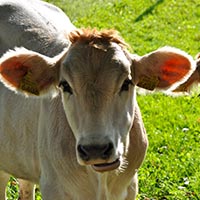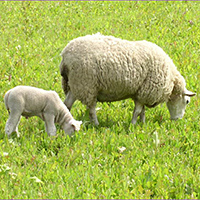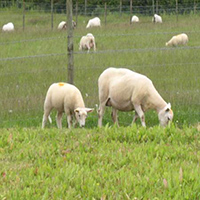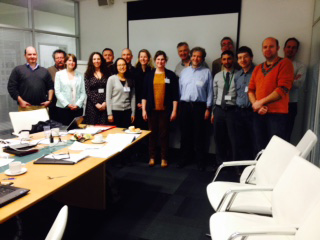PrOPara
Tackling the parasitological challenges in organic ruminant farming practices
Background
Over the last 15 years, several projects funded either by EC or National Governments have been commissioned to investigate sustainable ways of controlling parasites in organic and low input livestock production systems. Although these projects have largely delivered the underpinning scientific research, progress to implement effective control strategies has been hindered by: i) little research at a farm systems level, ii) the absence of clear cost-benefit or societal acceptance analysis and iii) difficulties in delivering user-friendly innovation and reaching the appropriate stakeholders.
Main project activities
- assess existing knowledge from research, development and benchmarking studies on parasite control, with on-farm trials
- associate novel data on disease prevalence with risk factors and control measures
- develop, refine and evaluate user friendly decision support tools
- perform cost-benefit analysis on control measures available for organic ruminants
- develop and deliver technical innovation to facilitate deployment of sustainable parasite control strategies
Benefits and results
Expected societal benefits of the project
The consortium will engage with stakeholders beyond the academic community, farmers and advisors at a first stage and standard-setting organisations, EC and national decision-makers at a later stage, to promote awareness and knowledge and to further explore the wider societal implications of the research work. One of the outcomes will be a reduction in the use of allopathic (commercial) drugs for helminthosis controls, which will have a positive impact on the environment and slow down the development of anthelmintic resistance.
Project innovations will also improve sustainability of organic ruminant production, which has positive implications in improving farming income, and as a consequence human welfare and cultural development of rural communities. To ensure a significant impact on this, we have included a specific workpackage which is dedicated to cost-benefit and farmers’ acceptance analysis, to identify approaches that will facilitate the wide deployment of integrated strategies by organic ruminant farmers.
Expected outcomes, results and impact
The project will develop and deliver innovations for organic ruminants in Europe, through stakeholder participation throughout. For example, for cattle it will deliver: i) an electronic application that will facilitate liver fluke control for organic farmers and ii) a parameterised model where weight gains are used as a proxy for early diagnosis and targeted treatment of GIN.
For small ruminants it will deliver:i) a set of farmer friendly criteria formulated as a tool to help farmers decide drenching requirements of their flock/herd and ii) an economic model, that will generate estimates of the extra costs of implementation of alternative strategies for GIN control. The project will also deliver novel information based on surveys and stakeholder participation studies on current helminth control strategies in organic farms in Europe, fluke prevalence data and associated risk factor analysis, which will improve animal health and welfare through improved monitoring.
Expected long-term impact
The overall objective of this project is to generate information and tools that can be readily used by organic farmers to improve animal health and welfare. The expectation is that the implementation of alternative approaches to control parasitism will be facilitated following the realisation of the project.
How to reach target groups
The consortium will focus on informing the main stakeholder groups:
- organic ruminant producers, farmer organisations, veterinarians and agricultural advisors,
- livestock feed producers and other industry and
- agricultural standard setting bodies, consumer groups and animal welfare non-government organisations.
The three main dissemination mechanisms are the project website, PrOPara Workshop and the national training events.
More about the project
Coordinator of Propara
- Spiridoula Athanasiadou,
Scotland's Rural College
Mail:
Spiridoula.Athanasiadou@sruc.ac.uk



Project partners
Prof Stig Milan Thamsborg, UCPH, Denmark
Dr Hervé Hoste, INRA /IHAP, France
Prof Gabriela Knubben and Mr Chris van der Meijden , LMU, Germany
Prof Saulius Petkevicius, VA LUHS, Lithuania
Prof Johan Höglund, SLU, Sweden
Drs Matthias Stolze and Steffen Werne, FiBL, Switzerland
Dr Cynthia Verwer, LBI, The Netherlands
Dr Marion Kluivers, WUR-LR, The Netherlands
The consortium of PrOPara

The project PrOPara is funded by ERA-Net CORE Organic Plus Funding Bodies partners of the European Union’s FP7 research and innovation programme under the grant agreement No. 618107.
